An efficient implementation of selective scan in one file, works with both cpu and gpu, with corresponding mathematical derivation. It is probably the code which is the most close to selective_scan_cuda in mamba.
20240304: New implementation with new derivations!we now support a new approach to implement selective_scan chunk-parallely:selective_scan_easyv3. It is faster thanselective_scan_easywhend_state=1, but still slower thanmamba_ssmwith cuda. We would implement it intritonand test the speed in the future.
code is in selective_scan_easy and SelectiveScanEasy.
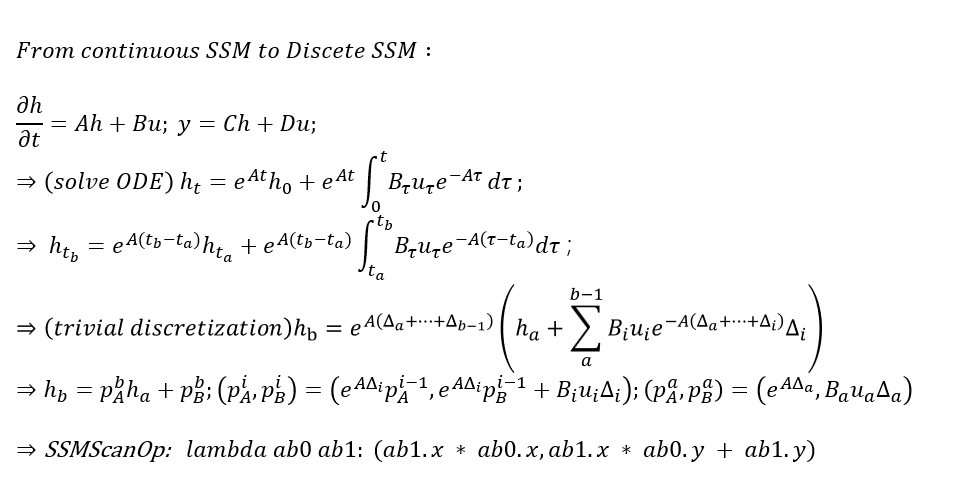
This is the chunk parallel version of selective scan, with support to some different branches.
code is in selective_scan_easyv3.
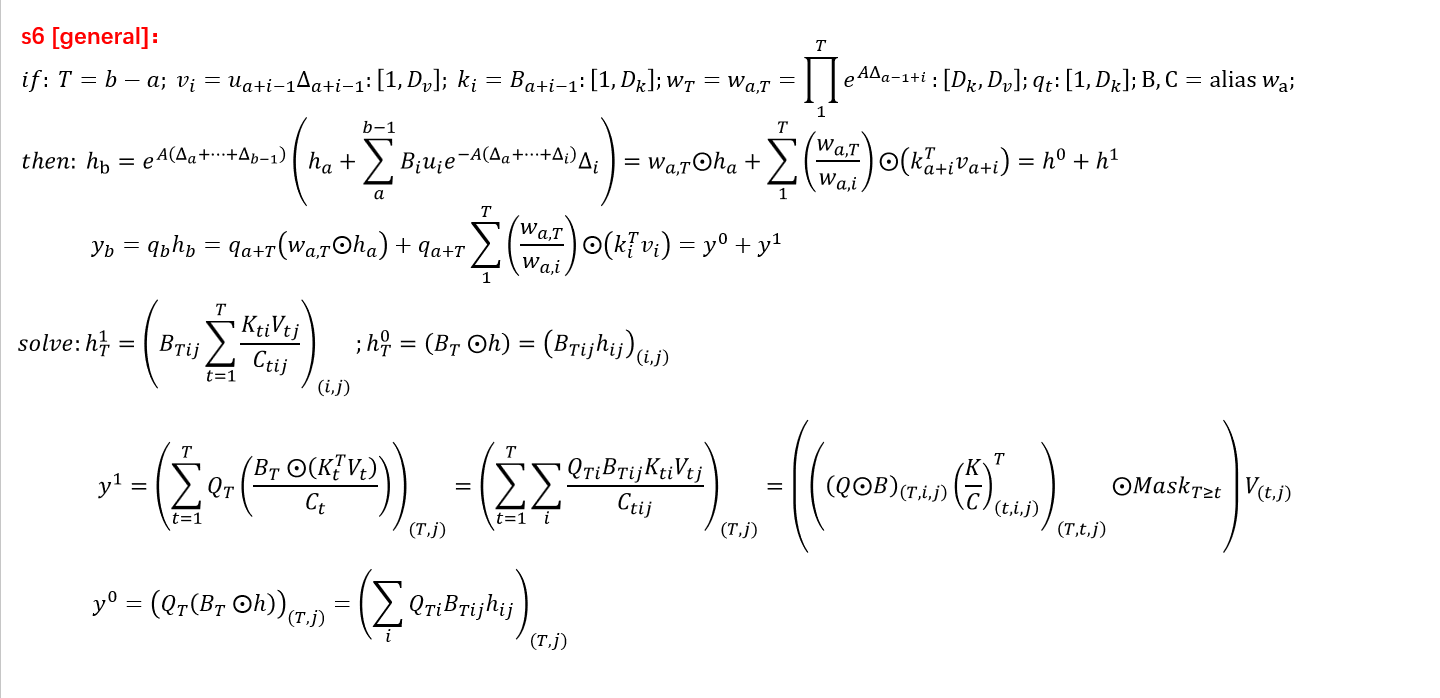
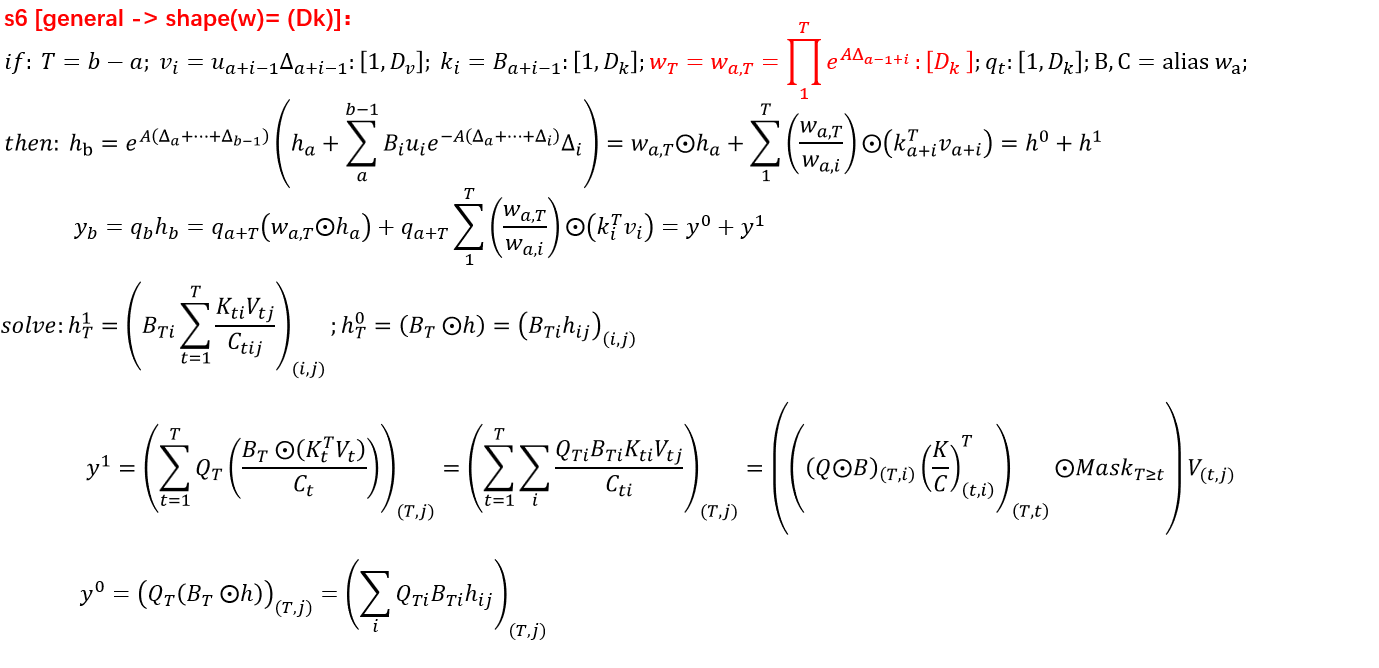
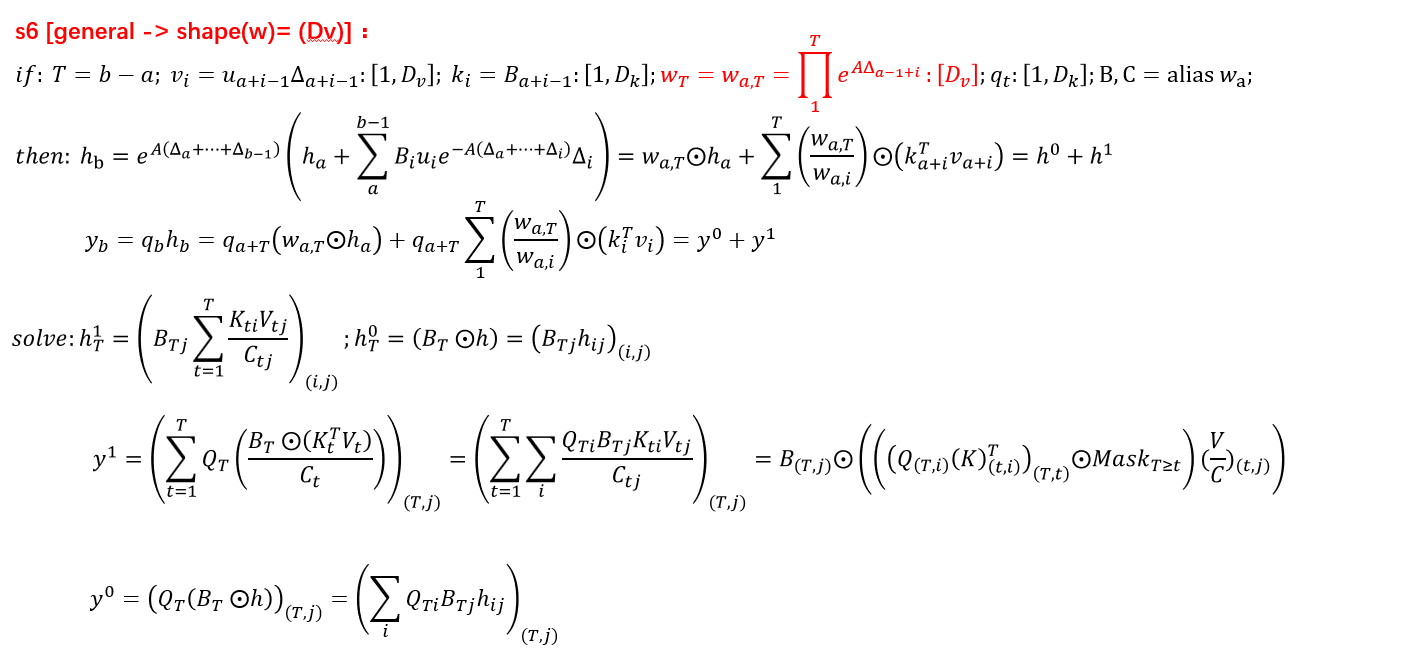
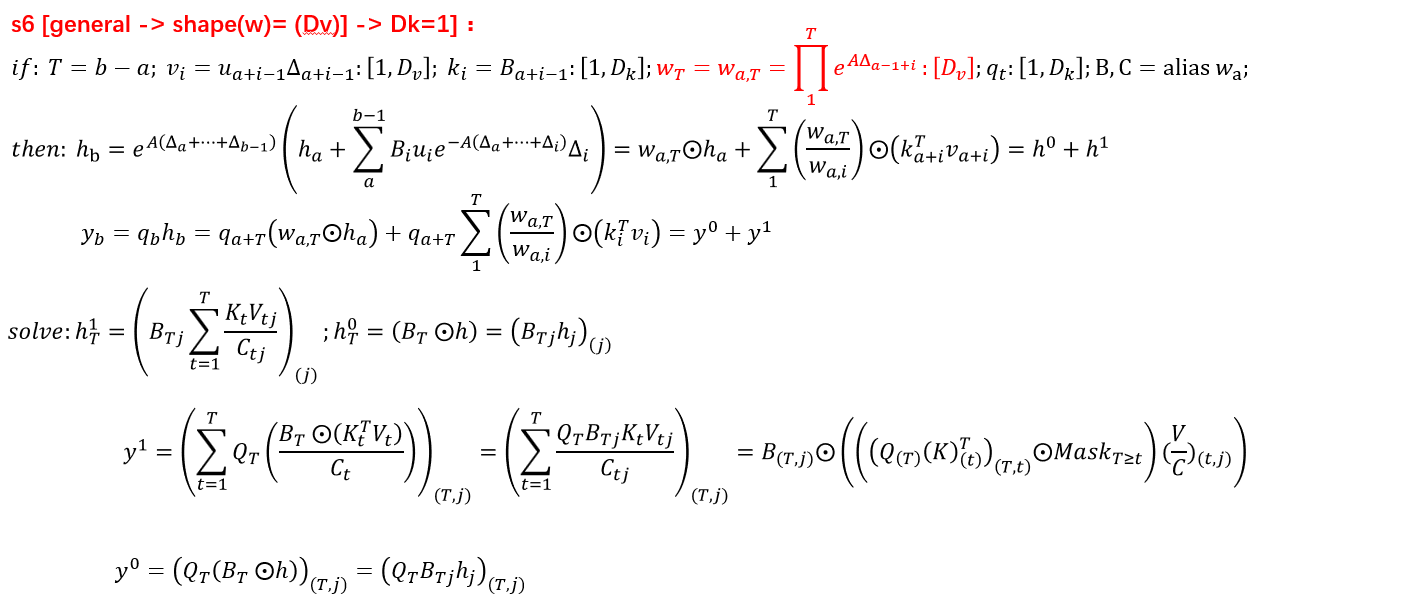
import torch
def selective_scan_easy(us, dts, As, Bs, Cs, Ds, delta_bias=None, delta_softplus=False, return_last_state=False, chunksize=64):
"""
# B: batch_size, G: groups, D: dim, N: state dim, L: seqlen
us: B, G * D, L
dts: B, G * D, L
As: G * D, N
Bs: B, G, N, L
Cs: B, G, N, L
Ds: G * D
delta_bias: G * D
# chunksize can be any as you like. But as the chunksize raises, hs may get None, as exp(sum(delta) A) is really small
"""
def selective_scan_chunk(us, dts, As, Bs, Cs, hprefix):
"""
partial(h) / partial(t) = Ah + Bu; y = Ch + Du;
=> partial(h*exp(-At)) / partial(t) = Bu*exp(-At);
=> h_t = h_0 + sum_{0}_{t}_{Bu*exp(A(t-v)) dv};
=> h_b = exp(A(dt_a + ... + dt_{b-1})) * (h_a + sum_{a}_{b-1}_{Bu*exp(-A(dt_a + ... + dt_i)) dt_i});
y_i = C_i*h_i + D*u_i
"""
"""
us, dts: (L, B, G, D) # L is chunk_size
As: (G, D, N)
Bs, Cs: (L, B, G, N)
Ds: (G, D)
hprefix: (B, G, D, N)
"""
ts = dts.cumsum(dim=0)
Ats = torch.einsum("gdn,lbgd->lbgdn", As, ts).exp()
scale = Ats[-1].detach()
rAts = Ats / scale
duts = dts * us
dtBus = torch.einsum("lbgd,lbgn->lbgdn", duts, Bs)
hs_tmp = rAts * (dtBus / rAts).cumsum(dim=0)
hs = hs_tmp + Ats * hprefix.unsqueeze(0)
ys = torch.einsum("lbgn,lbgdn->lbgd", Cs, hs)
return ys, hs
inp_dtype = us.dtype
has_D = Ds is not None
dts = dts.float()
if delta_bias is not None:
dts = dts + delta_bias.view(1, -1, 1).float()
if delta_softplus:
dts = torch.nn.functional.softplus(dts)
if len(Bs.shape) == 3:
Bs = Bs.unsqueeze(1)
if len(Cs.shape) == 3:
Cs = Cs.unsqueeze(1)
B, G, N, L = Bs.shape
us = us.view(B, G, -1, L).permute(3, 0, 1, 2).float()
dts = dts.view(B, G, -1, L).permute(3, 0, 1, 2).float()
As = As.view(G, -1, N).float()
Bs = Bs.permute(3, 0, 1, 2).float()
Cs = Cs.permute(3, 0, 1, 2).float()
Ds = Ds.view(G, -1).float() if has_D else None
D = As.shape[1]
oys = []
# ohs = []
hprefix = us.new_zeros((B, G, D, N), dtype=torch.float)
for i in range(0, L - 1, chunksize):
ys, hs = selective_scan_chunk(
us[i:i + chunksize], dts[i:i + chunksize],
As, Bs[i:i + chunksize], Cs[i:i + chunksize], hprefix,
)
oys.append(ys)
# ohs.append(hs)
hprefix = hs[-1]
oys = torch.cat(oys, dim=0)
# ohs = torch.cat(ohs, dim=0)
if has_D:
oys = oys + Ds * us
oys = oys.permute(1, 2, 3, 0).view(B, -1, L)
oys = oys.to(inp_dtype)
# hprefix = hprefix.to(inp_dtype)
return oys if not return_last_state else (oys, hprefix.view(B, G * D, N))pytest test_selective_scan.py